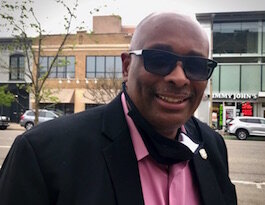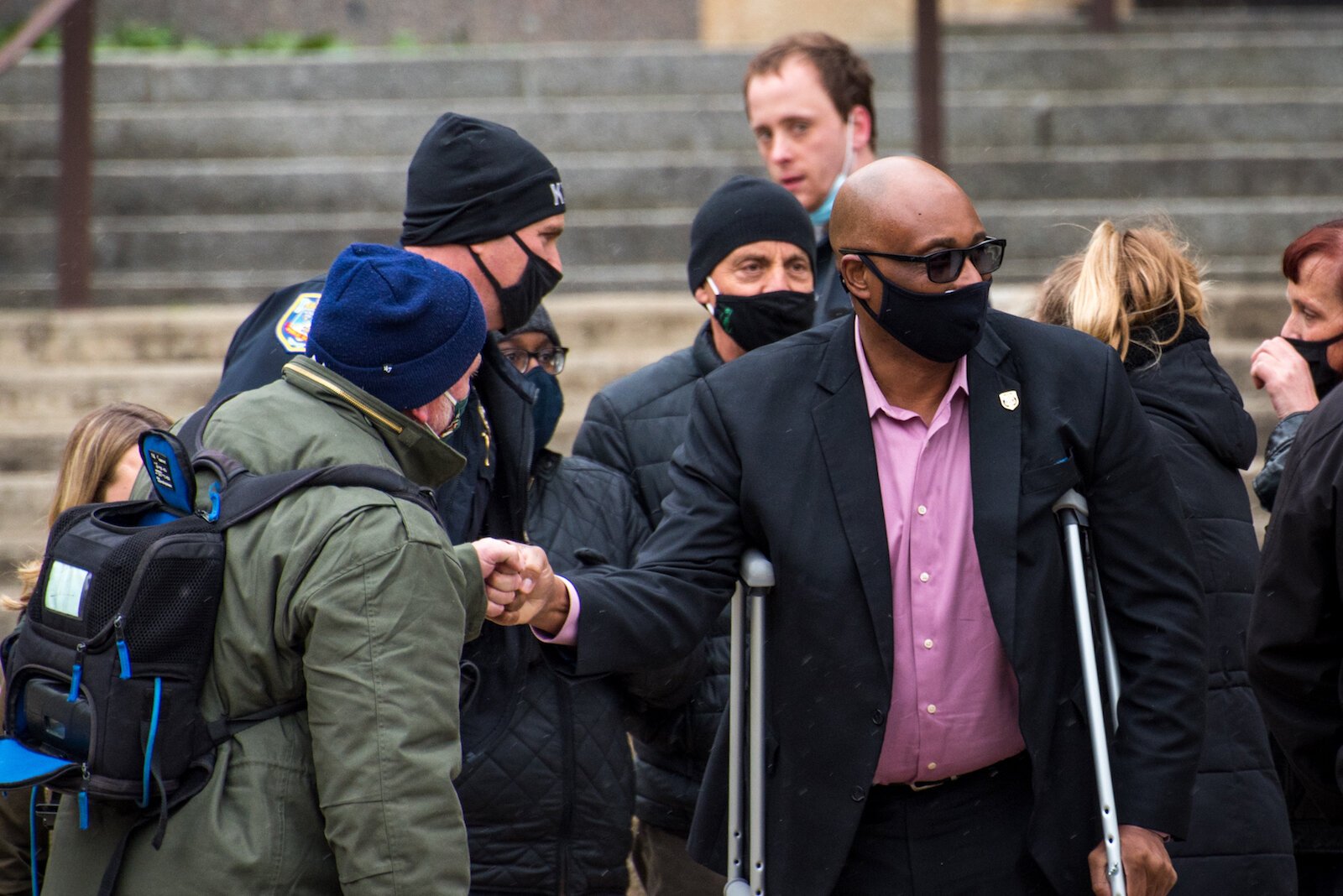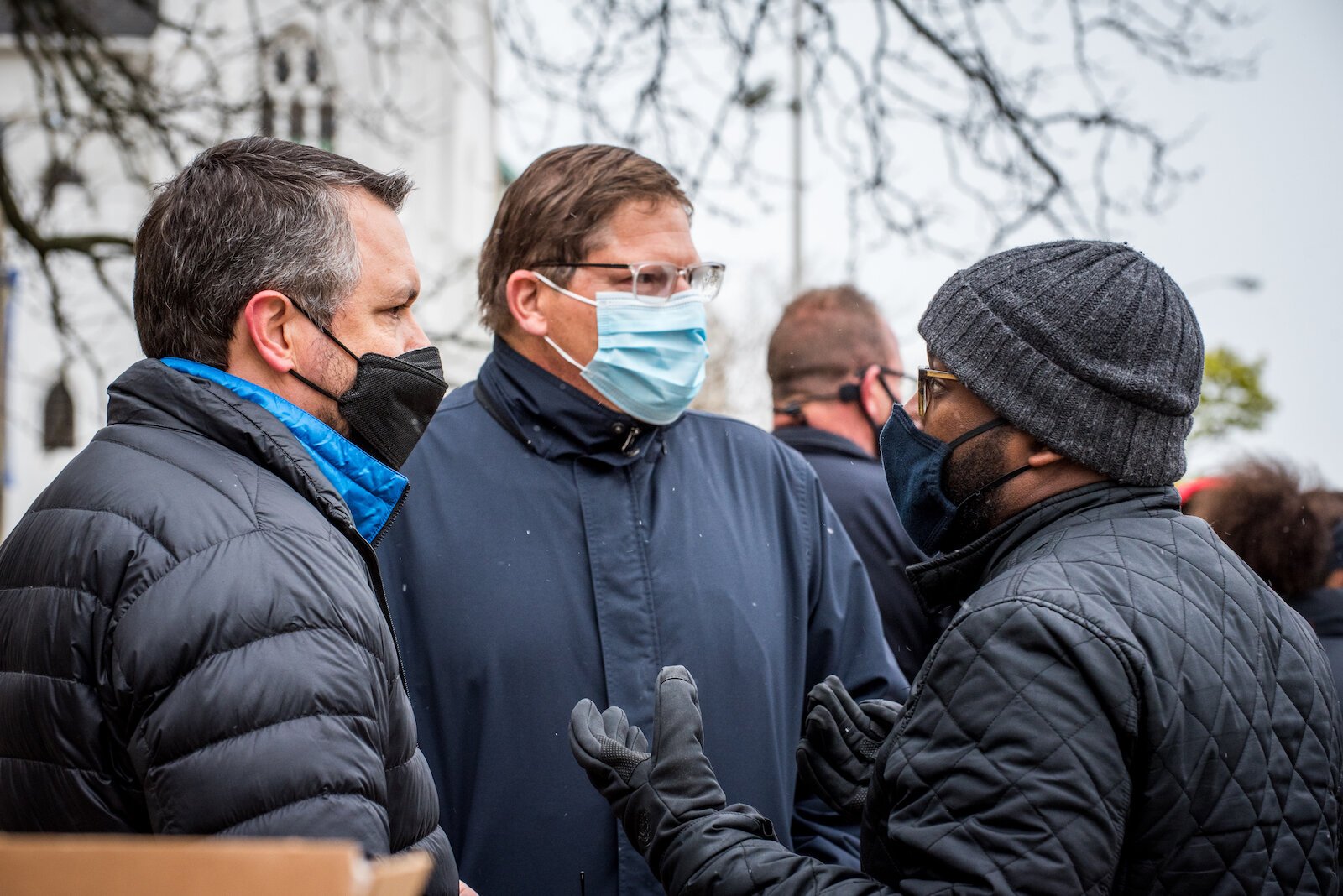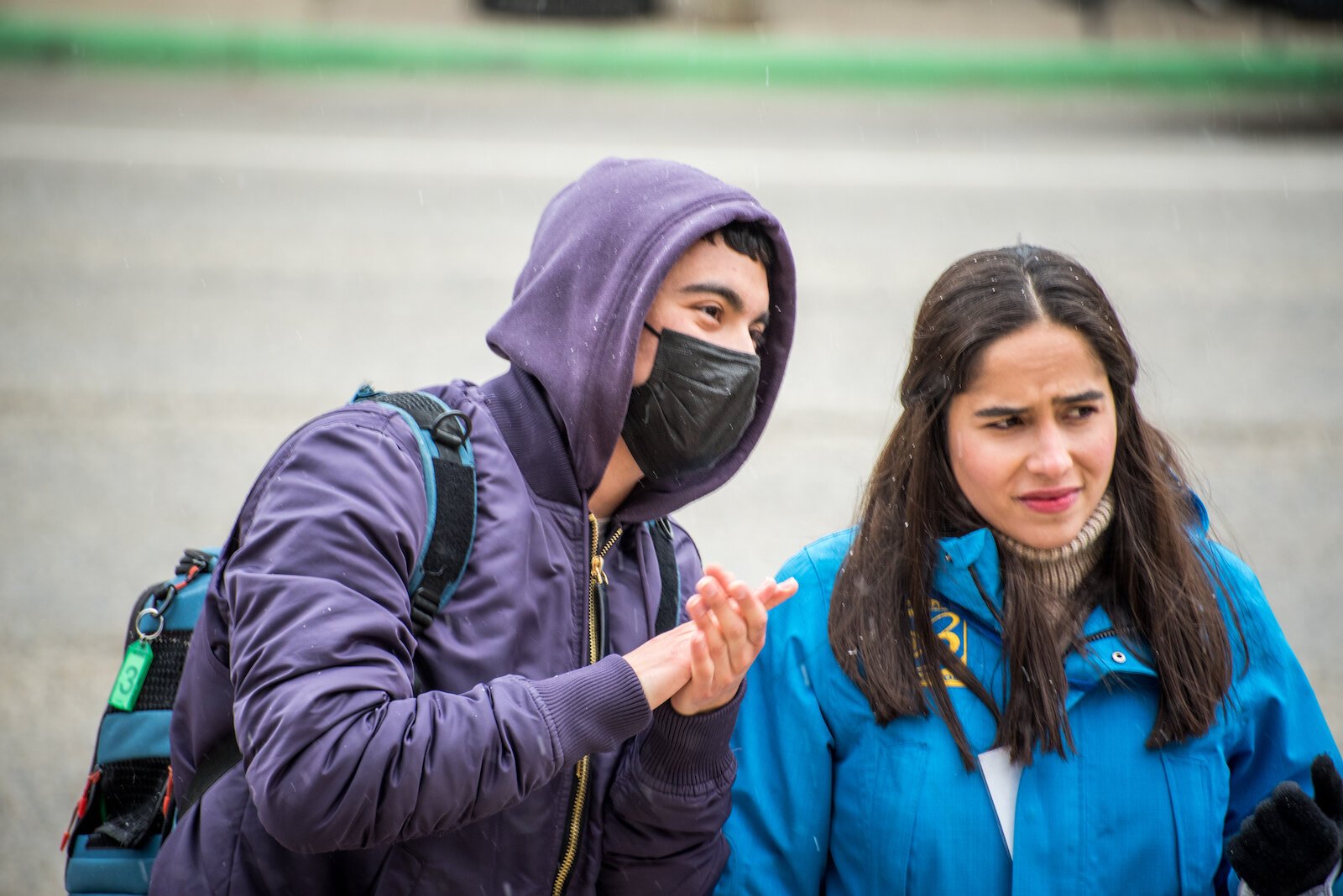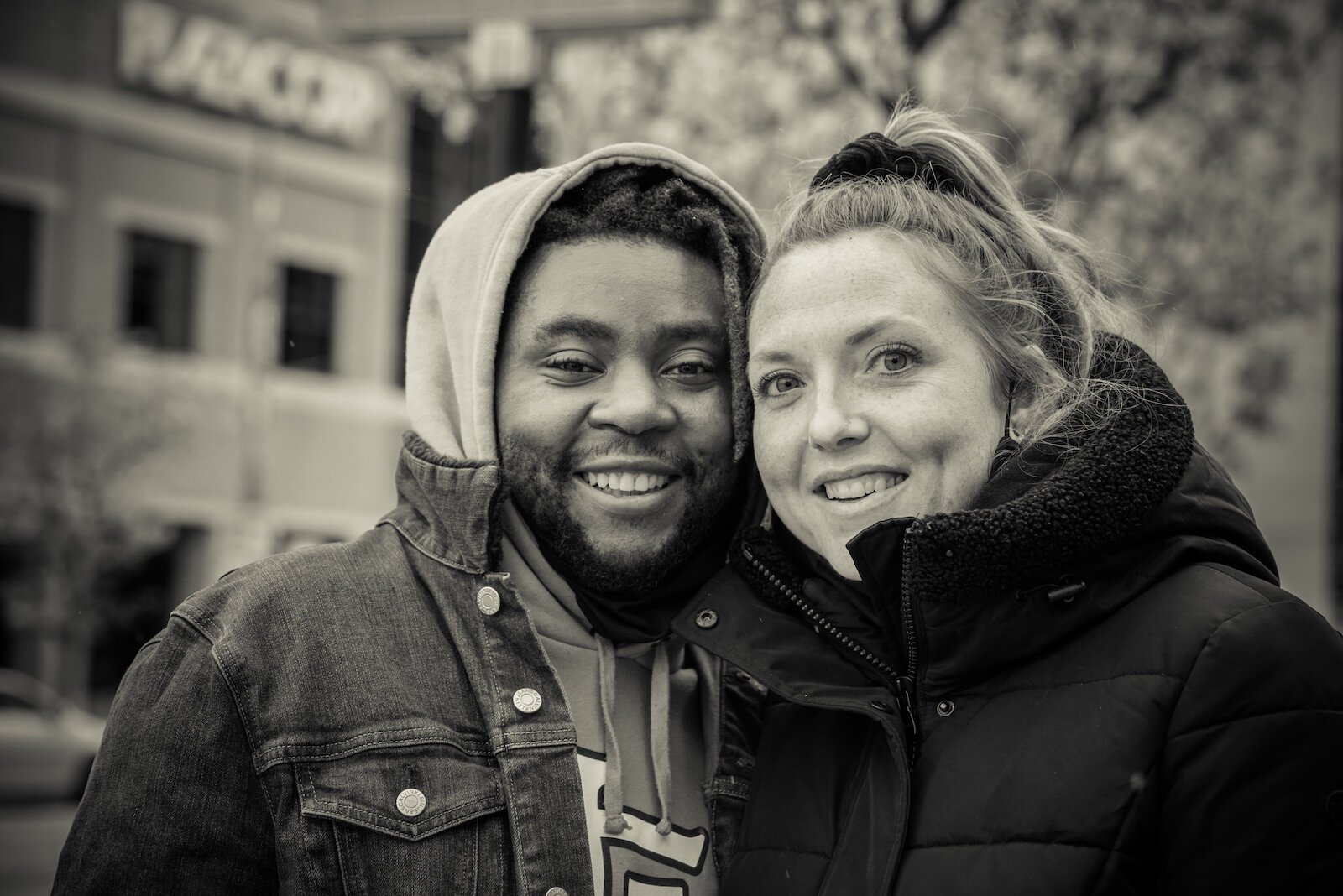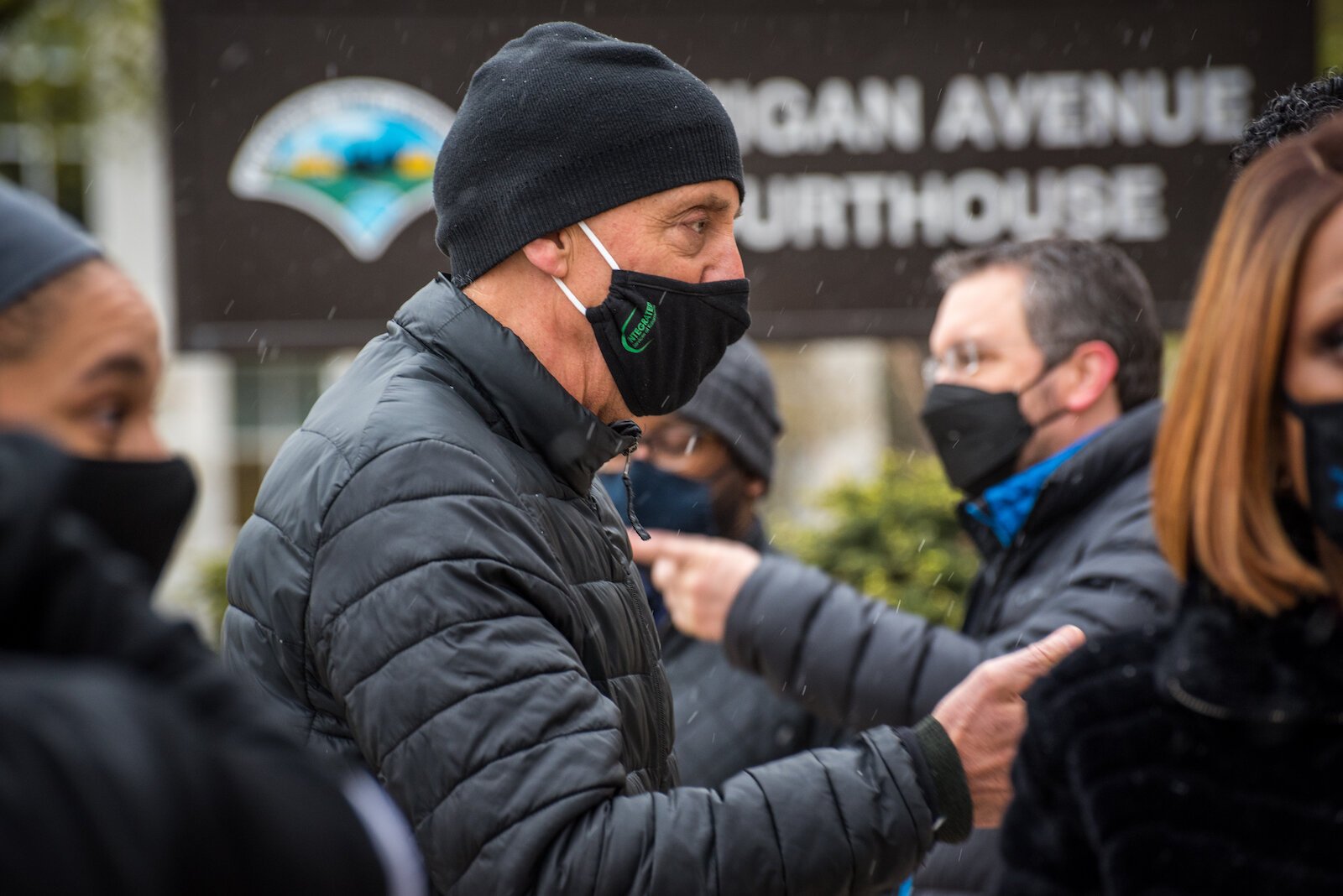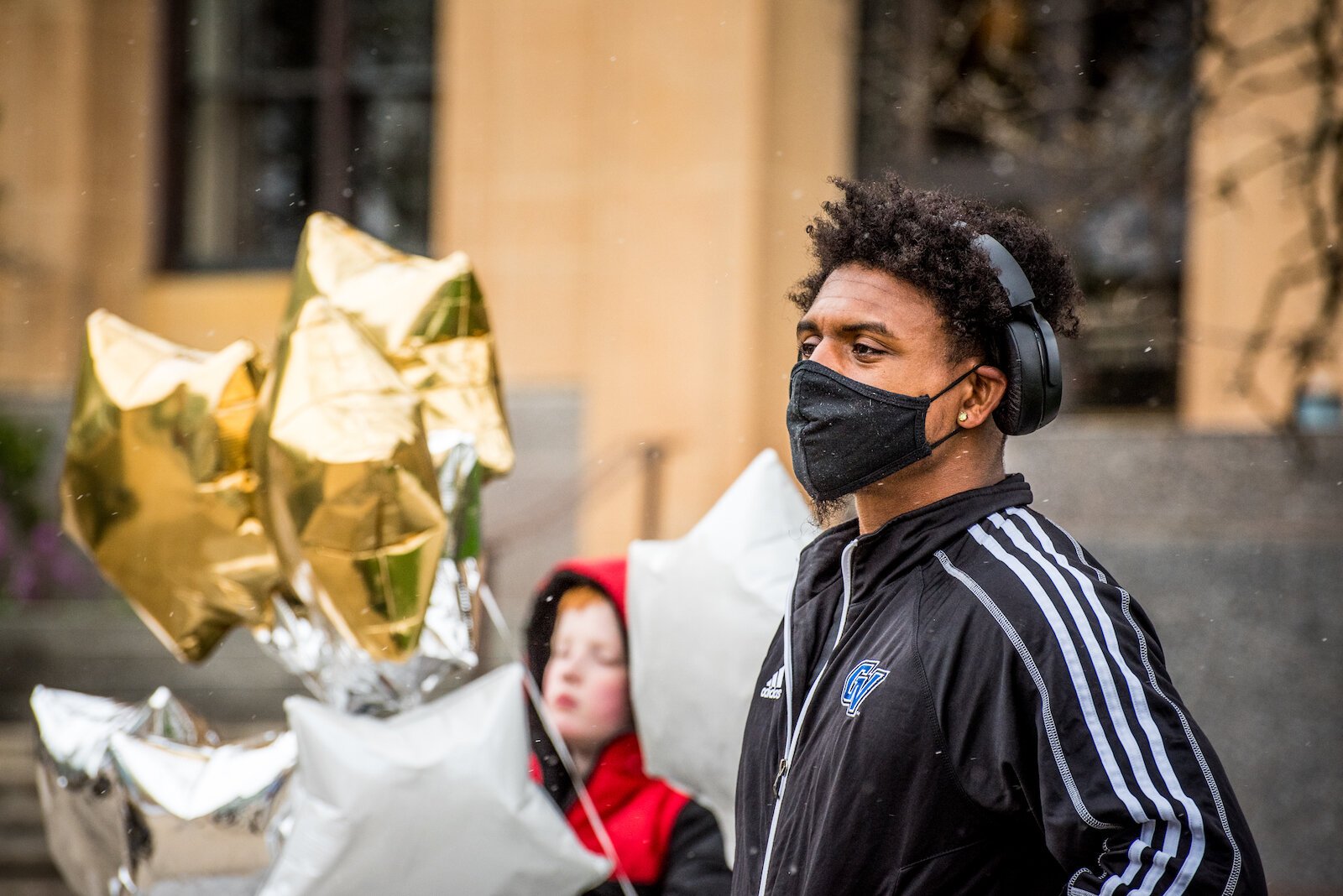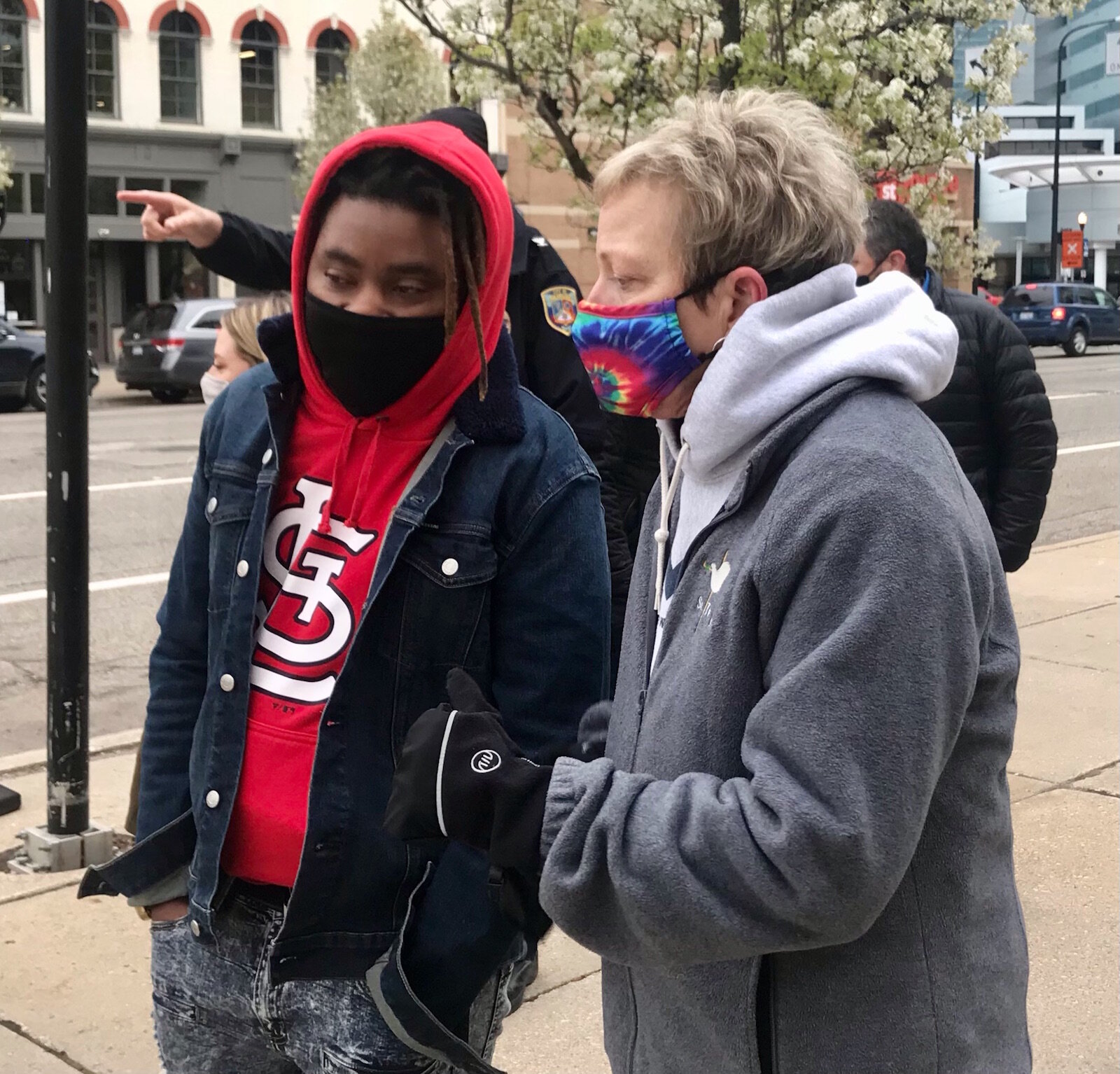Those who gathered in downtown Kalamazoo were not in a celebratory mood.
Tuesday’s guilty verdict in the police killing of George Floyd was a win for social justice, some said afterward in Kalamazoo. But it’s not a win that everyone is ready to celebrate.
“For right now, our moment, we are very happy,” said Corianna McDowell, a Kalamazoo mother who turned social activist following the May 25 police killing of Floyd in Minneapolis. “History has been made for African-Americans (and) history has been made for the justice system. But it does not stop here. We do have to continue.”
Kalamazoo activist Noelle Massey said, “The verdict was the right thing. People keep asking, ‘Is this justice?’ And I think for many of us, we say, ‘No,’ because justice would be bringing George Floyd back for his family and loved ones. So, in that regard, this is a small amount of legal justice that can be had in his case.”
McDowell and Massey were two of about three dozen people – including public safety and city officials — who gathered downtown on the steps of the Kalamazoo County Courthouse less than two hours after the guilty verdicts were announced in the trial of former Minneapolis police officer Derek Chauvin.
Jurors deliberated for about 10 hours Tuesday before finding Chauvin, 45, guilty on each of three charges related to Floyd’s death: second-degree murder, third-degree murder, and second-degree manslaughter. Their action ended the two-week trial.
The May 25, 2020 incident, in which Chauvin knelt on Floyd’s neck as onlookers watched and heard Floyd repeatedly say “I can’t breathe,” triggered protests and marches in cities nationwide and abroad. It appeared to be a tipping point in a growing list of incidents in which unarmed black and brown people were killed by police.
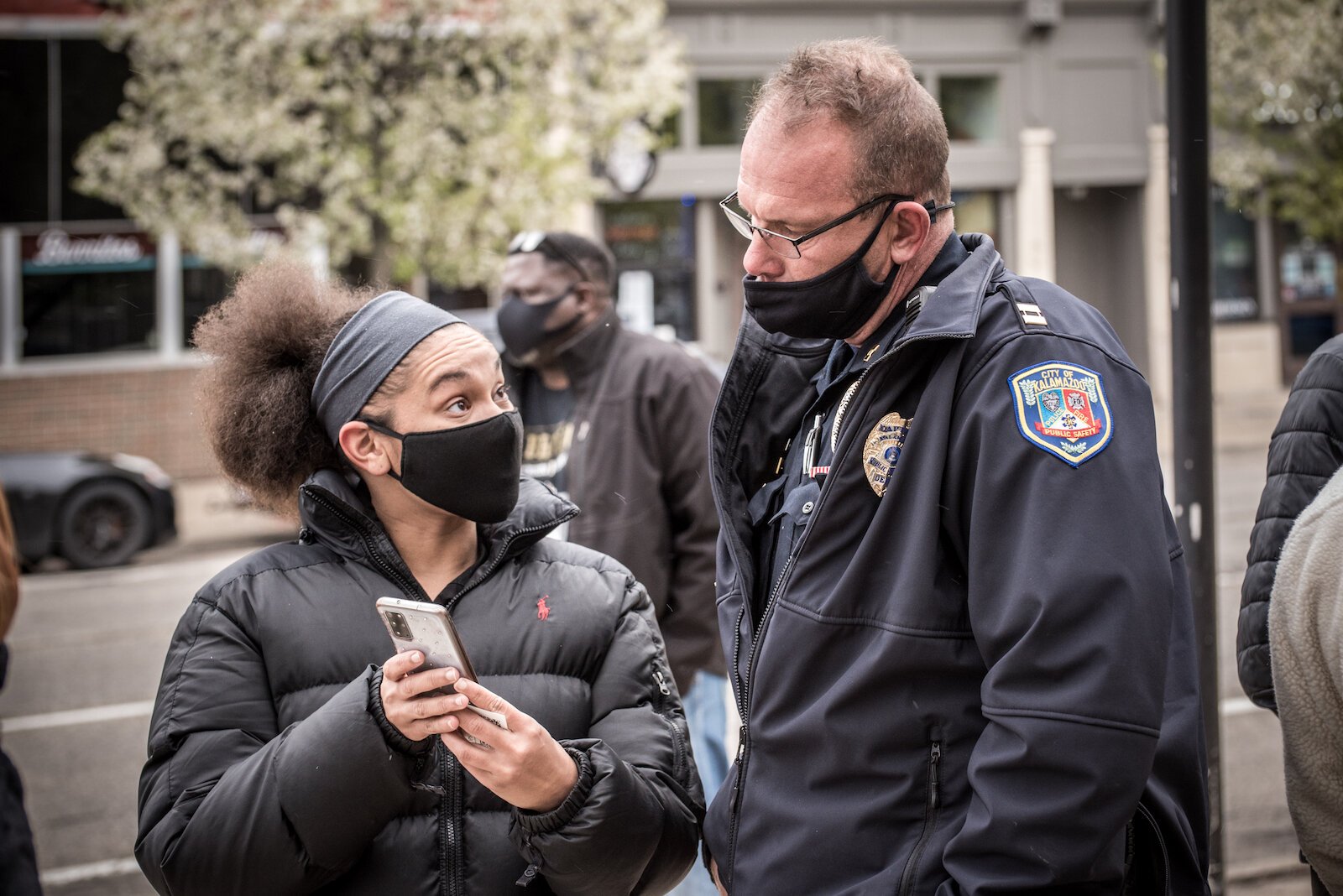
In the Floyd case, police were called to investigate a complaint that a man had used a counterfeit $20 bill at a store. Floyd, 46, was already handcuffed and talking to police when he resisted attempts to be placed in a police cruiser. Chauvin and other officers reacted by pinning him face-down to the ground for 9 minutes and 29 seconds.
Those who gathered on the steps of the Kalamazoo County Courthouse at about 6 p.m. Tuesday seemed to be grateful the trial was over but they were not in a celebratory mood.
McDowell, who organized a rally that brought two of Floyd’s close friends and hundreds of area people to Bronson Park on July 11, described progress in stopping police shootings in baseball terms.
“This is like the first step,” she said. “You hit. You go to first base and you’ve got to keep going and make it until you get that home run. We are not in that final home run, But this is a huge step forward, very powerful.”
She said fatal shootings involving Breonna Taylor, 26, in March of 2020 in Louisville, Ky., Daunte Wright, 20, on April 11 in the Minneapolis area, and others need to be addressed.
“First, I’m not happy about him (Chauvin) getting convicted of something that should have never happened,” said Quinton Bryant, a 34-year-old Kalamazoo man who has been active in organizing protests and voter turnout since the George Floyd incident. “But he got what he deserved. So the justice system worked in that aspect.”
But he said the incident should not have happened and Floyd should have been let go with a ticket.
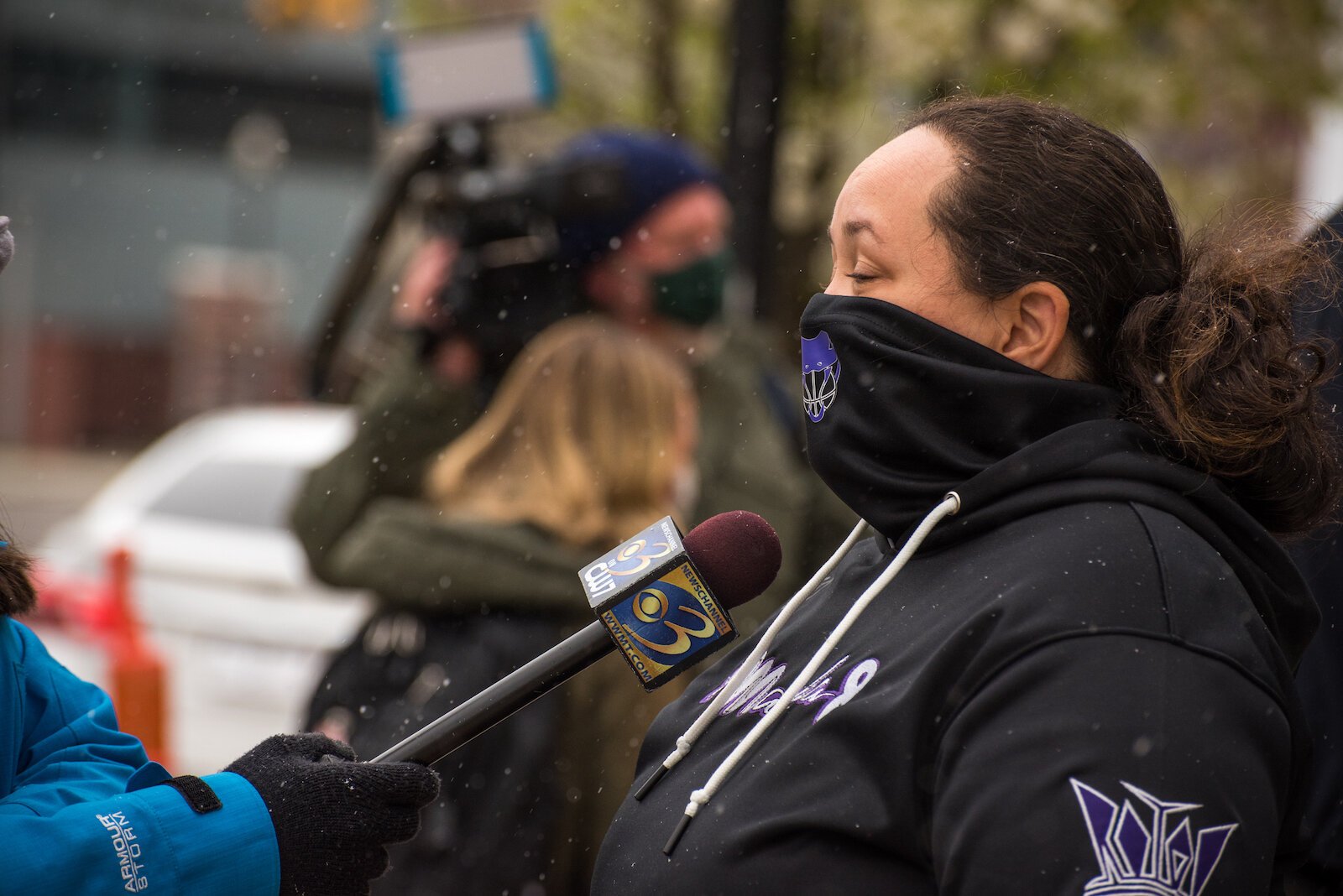
“We should have never gotten to this point,” Bryant said. “So it’s hard to be in a great mood about that because George Floyd lost his life that day.”
Many who followed the trial by television or social media seemed to be moved by testimony from people who witnessed the incident and were emotional as they testified about not being able to help Floyd. The prosecution argued that Floyd died of asphyxiation after Chauvin knelt on Floyd’s neck for 9 minutes and 29 seconds, which is longer than had been reported for most of the last year.
“I think that the other side of it — the unfortunate silver lining,” Massey said of the Chauvin trial, “is that police from his very own department broke the blue wall of silence. And that helps break the stigma and sets a precedent for other police departments across the country to start holding the bad guys accountable because it’s making it dangerous for residents as well as good police.”
Medaria Arradondo, chief of the Minneapolis Police Department, testified that Chauvin violated the department’s use of force policies.
Chauvin’s defense attorney Eric Nelson argued that Floyd’s death was not the natural result of Chauvin’s actions. He argued that narrow arteries, an enlarged heart, and low levels of fentanyl and methamphetamine contributed to Floyd’s death and that there was no evidence that his client intentionally applied unlawful force.
“I believe that in this case justice has been done,” said Kalamazoo Mayor David Anderson. “I also believe that it shows our system can work and our question now is how do we move forward out of this in a way that builds community?”
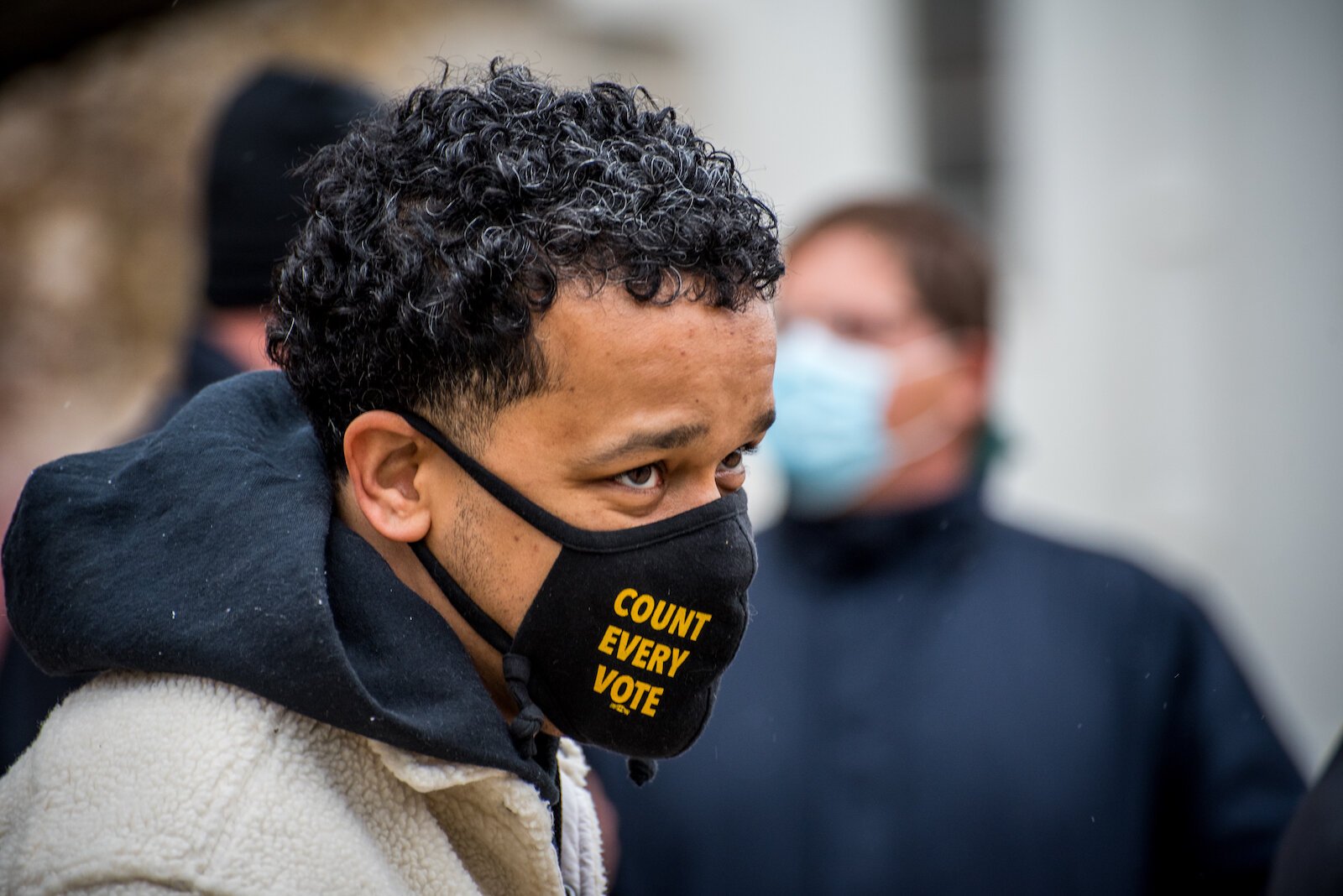
He said he thinks that we need to make sure we have a community that is inclusive and equitable “and that includes how we police, how we support each other, housing, income, you name it.”
Asked where we go from here, Kalamazoo City Commissioner Jeanne Hess said, “Continue the work. We (should) continue together toward solutions and away from the divisiveness that we’ve had.”
She described the verdict as a leap forward for justice in the United States.
Massey, 35, said, “We can be more preventative and (stop) lives lost on all sides if we take this momentum and keep moving forward, building relationships, having the police be more empathetic and understanding of the community. Stop asking them (citizens) to meet where the police are and instead have the police meet them where the community is.”
Asked if he was happy that the verdict has not, thus far, resulted in more civil unrest, David Boysen, assistant chief of the Kalamazoo Department of Public Safety, said, “I’m very happy. We had a protest Friday. It was very peaceful. And I just hope that if we have protests it continues to be that way. We want to try to start repairing things and building things. I’d hate to see people want to tear things down again. It’s just not going to do any good.”
He said KDPS is focused on new policing, which involves more strategic interventions.
“It’s not all about arrests,” Boysen said. “It’s not all about tickets. It’s not all about how many cars you stop. It’s about trying to keep the community safe, building relationships (and) identifying those individuals that may be causing harm in the community and focusing on them.”
Asked where do we go from here, Bryant said, “We keep staying in these streets. We keep applying pressure. We keep on demanding that we hold our city officials and police departments accountable.”
Vernon Coakley, chief of the Kalamazoo Department of Public Safety, said the world was waiting for the verdict in the Chauvin trial. But he said individual communities have to come together to make each a better place in which to live.
“This is our community, Kalamazoo,” Coakley said. “We’ve got to know one another. And when we start knowing who our neighbors are, we begin to care, we begin to move forward and we can help change our neighborhoods. Then we can broaden out to other cities. But we’ve got to know each other first.”
He said he is working to help the community get to know KDPS better and help his officers get to know the community better. That is happening through its outreach programs and by bringing people together, he said.
Bryant, who said he was definitely fearful about how people would have reacted to a different verdict, said the community has to find a way to rebuild trust with the police and “Figure out a way to ensure that we don’t have to be fearful in our city when we get pulled over or when we do decide to call the police. We want to make sure things like this don’t come to Kalamazoo.”

